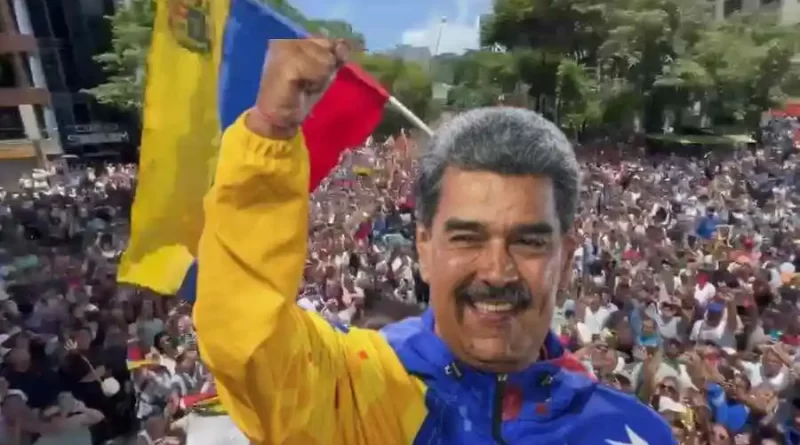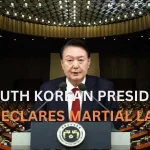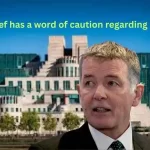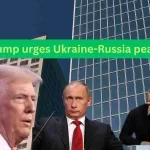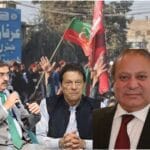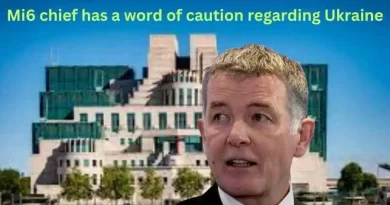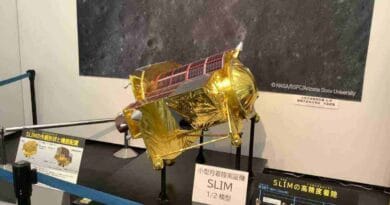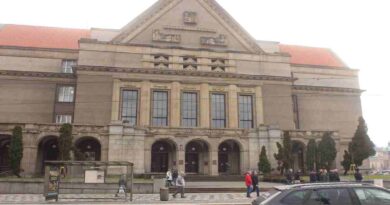Maduro’s Rise Amid Venezuela’s Endless Struggles
Tough times for Venezuelan President Nicolas Maduro: Self-declared socialist faces challenges from within and without
It’s often said that history repeats itself and for Venezuelans, this is quite a fact to be lived with. Barring a few spells of Democracy, the nation has often found itself on the brink of a precipice. It all started with a 1988 referendum in which massive tampering with votes was done by the Chilean Dictator, Augusto Pinochet, followed by a constitutionally barred third term in 2000 for Peruvian leader Alberto Fujimori.
These Dictators, however, had a brief stint with power after being removed by their political contenders at short notice. And since 2012, Maduro, too, had his own share of woes albeit, economical ones which his predecessor Hugo Chavez passed on to him, being a loyal aide to the latter. The Bolivarian revolution on which rested the bedrock of reforms for Chavez was anything but chaotic to begin with, nevertheless, challenging for his successor.
His 12-year stint in power was marked by a drone attack and people protesting over the collapse of the oil-rich economy. It was followed by an international criminal investigation for human rights abuses apart from a declaration of a $15 million bounty by the U.S. then, on the revenue received through drug trafficking.
The rebuke from the U.S. came for the rouge landslide victory by his opponent last year, who is again claiming to come back by the time Maduro is elected once again. Last year, the President had to resort to the use of armed forces to arrest his opponents as the votes were believed to have been stolen. On Friday, Maduro is set once again to be sworn in as the President of Venezuela.
A biopic made on the President portrays exactly the choices that a young Maduro is presented within the plot. Venezuela’s weak Democratic foundations are something that Maduro has still to work with while making decisions.
Decisions, that will determine the future of the nation in the long run, and coming from a background of a working-class barrio in Caracas, might help him in arriving at the same.
The biopic made during his last year’s campaign shows a teenager Maduro being presented with two sets of choices and the necessity of a decision between his baseball devotion and student activism. The real-life developments, however, proved to be the real education after high school.
Maduro has been to communist Cuba in 1986 for a year as part of imparting ideological instructions, when he walked on the path of radical politics, a path followed by his father.
He soon found out his calling in Chavez when upon coming back from Cuba, he pushed the former President’s agenda. In 1998 Maduro, then a young lawmaker helped him in the redistribution of the OPEC nation’s oil wealth and political power. Before that, upon returning home he started from being a bus driver which was followed soon by his stint as a union organizer.
In 1992, however, he for the first time jumped on the bandwagon with Chavez when the latter had to face a failed coup. The resistance came from the then-army paratrooper against an unpopular regime. Also, he met his would-be better half in Cilia Flores who worked as a lawyer for the jailed leader.
The spate of international as well as national recognition was soon to follow when in 2006, he took over as foreign minister for his outstanding role in smoothening tensions with the U.S. Chavez offered him the prestigious post then in recognition of the above service, after a short-lived coup. Building alliances is something that comes naturally to him as per the statement from his former deputy foreign minister, Vladimir Villegas. He has known Maduro since his high school days and says that “He was always very disciplined.”
In 2020 Coronavirus pandemic was preceded by an uprising in the military barracks before a secret raid by a U.S. ex-green Beret. The then-Trump government resorted to extreme pressure tactics of imposing oil sanctions on the nation following political unrest in Venezuela.
In 2018, he was taken to task by the International Criminal Court for his alleged human rights abuses which, in reality, was his strong-arm tactics of crushing his opponents.
Venezuelan would-be President faced his share of opposition too
This was when his accidental Presidency was strongly opposed by hardliners who demanded his exit. Maduro was then alleged to have resorted to folkish antics when he was supposed to bolster the already dying-out Venezuelan economy.
Leaving about 100 people dead in its wake, the protests had resumed an intensity again three years later. This was also the time when the supermarket shelves were vacant amidst the shortages of the worst kind.
The armed forces were then called to suppress the protests, preceded by the chaos that reigned immediately after Chavez passed away in 2013 due to a terminal illness. A leaderless nation, Venezuela faced the worst economic crisis of unprecedented levels when inflation topped almost 130,000%.
Also, the economy shrank up to 71% from 2012 to 2020 when covid happened. And this was when his political opponents and rivals inside the regime began to sense that there was something very wrong with his policies.
Maduro was again condemned by many countries led by the U.S. for his re-election as the nation’s President in 2018. In the campaigns following the election race for the post, Maduro resorted to a crackdown against his opponents and the latter boycotted the same, amid the allegations of barring them from the political process.
Juan Guaidó, the head of the National Assembly was recognized as Venezuela’s elected leader by them while terming the elections as illegitimate.
Maduro continues to get stronger after each crisis amidst the voices of sanity advising semblance and balance. Michael Shifter, a former president of the Inter-American Dialogue in Washington says, “The key is the armed forces,” adding that the recent downfall of Syria’s ruler, Bashar Assad, has renewed Venezuelans’ hopes for change: “These regimes are very unpredictable and can fall any moment even if they appear quite strong. If it collapses, it will collapse internally.”
All this is further exacerbated by the silence adopted by the Maduro Government in the wake of utilizing the services of security forces against his political opponents. This week, González said his son-in-law was kidnapped by masked men.
Carlos Correa, a prominent free speech attorney, was also hauled away by masked assailants. Confident of his opinion about the overwhelming support of his unknown opponent, Edmundo González, being only a tool used by his opponents and the U.S. to destabilize the country, he nevertheless proceeded with the elections.
Because of this supposedly undying attitude, he entered the 2024 Presidential elections with the same thinking. Defying the odds, he got a ruse to use security forces in the face of credible evidence of vote rigging and this claim to, victory.

